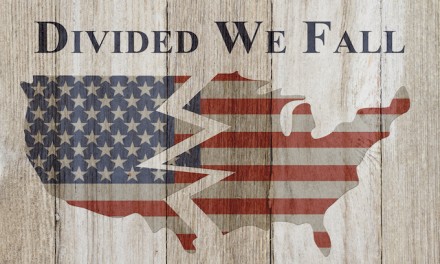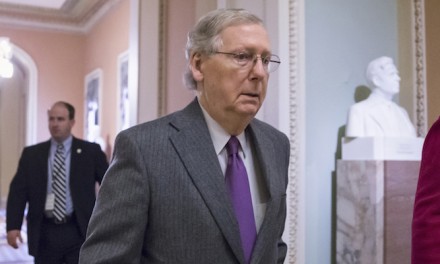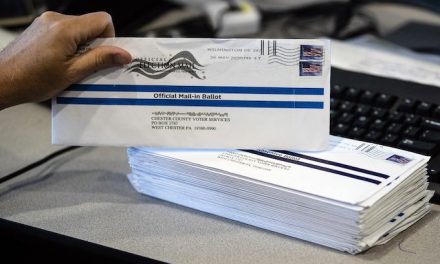Gov. Greg Abbott (R-Texas) signed Senate Bill 24 Friday, which prevents the state officials from issuing subpoenas demanding that pastors hand over their sermon messages for government inspection.
Alluding to a Bible verse as he addressed a late Sunday morning service at Grace Church in The Woodlands, Texas, Abbott commended the newly passed legislation.
“Texas law now will be your strength and your sword and your shield,” the Republican governor declared to the congregation, according to Townhall. “You will be shielded by any effort by any other government official in any other part of the state of Texas from having subpoenas to try to pry into what you’re doing here in your churches.”
Unbinding the Bible
Immediately going into effect, the bill authored by Texas Sen. Joan Huffman (R-Houston) works to protect pastors’ religious freedom so they can freely teach from the Bible on issues that many consider to be politically incorrect.
“[The government cannot] compel the production or disclosure of a written copy or audio or video recording of a sermon delivered by a religious leader during religious worship, or compel the religious leader to testify regarding the sermon,” the newly enforced Texas law states.
Houston’s homosexual mayor Annise Parker made the law necessary a few years ago when she launched her so-called “anti-discrimination ordinance” demanding the sermons of pastors in Texas’ largest city because they delivered the biblical teaching on homosexuality as being a sin.
“The legislation became necessary after five Houston pastors were ordered to surrender their sermons in 2014 – at the demands of liberal Houston Mayor Annise Parker,” Townhall’s Cortney O’Brien reported. “[O]ne of her targets, Pastor Khanh Huynh [said] earlier this year at a press conference for the introduction of the Free Speech Fairness Act. [that] Parker demanded his sermons because he and his fellow pastors were opposed to her transgender bathroom ordinance.”
Huynh saw no reason to give in to the unreasonable demands of the pro-LGBT mayor.
“We’re not going to back down, because we did nothing wrong,” Huynh expressed at the time. “We just speak the Word of God on moral issues, and we fight for the safety of women and girls.”
LGBT opposition
A small group of protesters arrived at the Grace Church ceremonial gathering accusing Abbott of violating the so-called “separation of church and state” – which was actually drafted to keep the state out of the Church’s affairs.
This was not the first time a Texas governor stood by pastors to make sure churches can do what they were created to do – teach God’s Word – and it also was not the first time such legislation was met by pro-LGBT resistance.
“Moments before the apex of the ceremony Sunday, Abbott wondered aloud whether it was the first time legislation had been signed at a church in Texas,” the Texas Tribune informed. “In 2005, Abbott’s predecessor, Rick Perry, held a bill-signing ceremony at a Christian school in Fort Worth – an event that also drew similar protests.”
There has been no shortage of controversy over pro-LGBT legislation in the Lone Star State.
“The fight over the Houston Equal Rights Ordinance (HERO) turned into a political storm, drawing in state Republican leaders like Abbott and Patrick, as well as GOP officials from outside Texas,” the Tribune’s Patrick Svitek recounted. “Houston voters ultimately struck down the law in 2015.”
Abbott gave accolades to Lt. Gov. Dan Patrick at the bill-signing ceremony for his involvement in the HERO fight “from the very beginning” – noting that he made the passage of the legislation a priority.
“Freedom and freedom of religion was challenged here in Houston, and I am proud to say you fight back,” Abbott proclaimed to churchgoers, the Tribune reported.
Pastor protection at the federal level
Augmenting religious freedom has been a common trend for the GOP, as President Donald Trump is also seeking to make sure the Church retains its prominent role in influencing society to help make America great again.
“President Trump has also sought to defend religious leaders’ right to speak their mind on politics and policies in his quest to overturn the Johnson Amendment,” O’Brien noted. “Trump did sign an executive order on religious freedom earlier this month, but it left most of the Johnson Amendment in place.”
Back in February, Trump told religious leaders that he was going to “destroy” the Johnson Amendment, declaring that he was planning on signing a bill that would fundamentally change a major aspect of the church-state divide that has been around since former President Lyndon B. Johnson introduced the law back in 1954 when he was a senator – in order to keep religious leaders from speaking on political issues from the pulpit.
Ultimately, the Johnson Amendment works as a restriction for churches and nonprofits to curb their influence in American politics. The liberal New York Times calls it “one of the brightest lines in the legal separation between religion and politics.”
“Under the provision, which was made in 1954, tax-exempt entities like churches and charitable organizations are unable to directly or indirectly participate in any political campaign on behalf of – or in opposition to – any candidate,” the Times stated in explaining the amendment. “Specifically, ministers are restricted from endorsing or opposing candidates from the pulpit. If they do, they risk losing their tax-exempt status.”
Even though the amendment was not considered to be controversial when it was adopted 63 years ago – when it was passed by a Republican Congress and signed by Republican President Dwight D. Eisenhower – most socially conservative Republicans today want the amendment repealed.
But fairness was not the original goal of the Johnson Amendment, as President John F. Kennedy’s successor used the legislation to his advantage – to silence the Church for his political gain.
“Back when Lyndon B. Johnson was a senator from Texas, he introduced the measure as an amendment to the tax code in 1954,” the Times’ Jeremy W. Peters pointed out. “Like many things Johnson did, the goal was to bludgeon a political opponent – in this case a rival in a primary who had the backing of nonprofit groups that were campaigning against him by suggesting he was a communist. Though there was no church involved – according to PolitiFact – churches were covered by the bill, as well.”
—-
Copyright American Family News. Reprinted with permission.

















Recent Comments